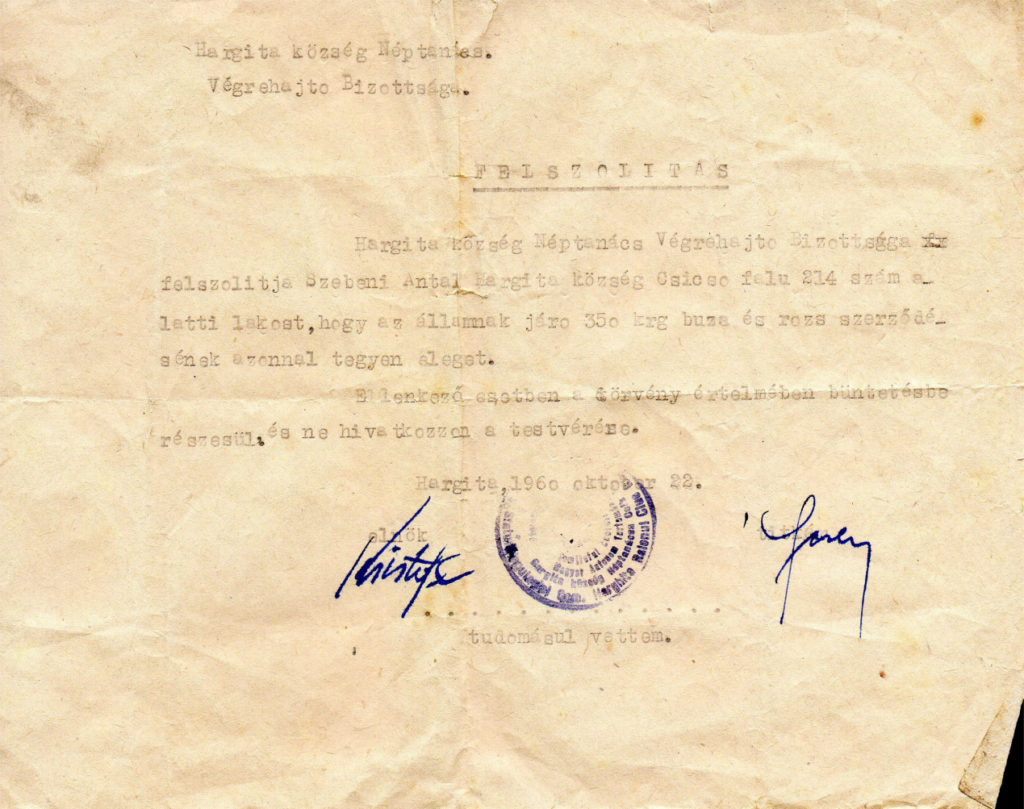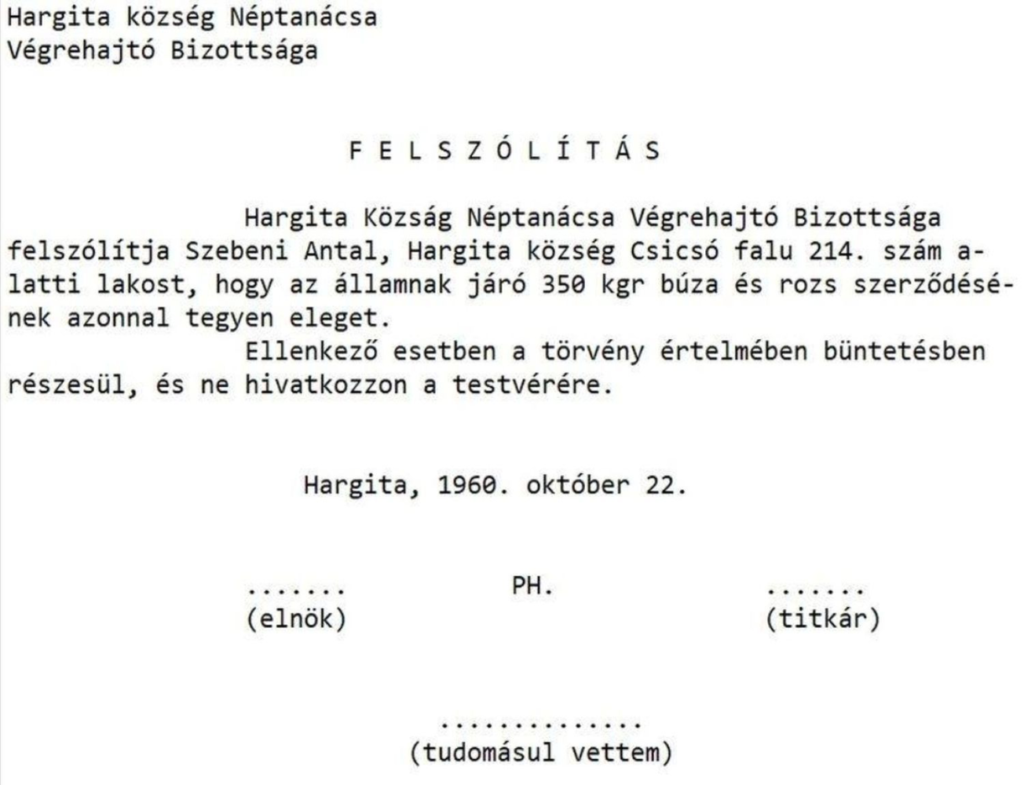ALL-TIME AUTHORITIES / Ildikó Bárányi
They Took It and Never Gave It Back
My mother’s grandfather, Antal Szebeny senior, was an Armenian–Székely shopkeeper in Transylvania. He had grocery shops in Csíkcsicsó, Csíkszépvíz and Farkaslaka (now: Ciceu, Frumoasa, and Lupeni, Romania). In times of war, every authority coming into power confiscated something from the people, especially from relatively well-to-do people, without ever returning it.
In May 1940 the Romanian Ministry of National Defence issued a document stating that they took two horses from Antal Szebeny for a period of three months, for which they would pay him the sum of 7 344 lei.
It seems, however, that Antal got neither the money nor the horses, as in November 1940 he turned to the Hungarian authorities now in charge, who issued a certificate attesting that “the Romanians took two horses from him, which they never returned”.
It is an interesting detail that the original typed text contains the word “Vlachs” rather than “Romanians”. This was obviously modified later, probably by Antal Szebeny himself. In the autumn of 1944, when the Romanians returned, he went to the Romanian military headquarters and showed this certificate to the new authorities (the same who were in power before the Hungarians) in the hope that they would give back his horses or their price. They did not.
The Russians arriving in 1944 took even more from him, without even issuing a certificate. However, a thorough tradesman records everything. Antal prepared a list of 81 numbered items about the “damage done by Russian soldiers”. The items on the list total nearly 165 000 pengős, which is estimated to be equivalent to 15 million Hungarian forints today. The confiscated goods include a leather-top carriage, a grandfather’s clock, a woman’s bicycle, forage, pine beams, wool, lamp wicks, shoe polish, fruit jams, and everything that used to be sold at a grocer’s shop.
Was It Better in the Sixties?
The 40s meant a turbulent period in Transylvania, which affected my maternal grandmother’s family in numerous ways, too: every couple of years, they had to swear allegiance to a new authority, which then investigated whether they had committed something “unsuitable” under the previous regime; and both the Romanian and the Russian armies commandeered whatever they needed, and nothing was ever returned.
But was the situation any better in the sixties, in the socialist period? Well, at least there was no war, but people were still defenceless.
Antal Szebeny, the brother of my maternal grandmother, apparently did not fulfil his delivery obligations in 1960, because he received a summons from the people’s committee: he was to deliver 350 kg wheat and rye, immediately. The summons ended with a notice looking strange in an official letter: “…and you should not refer to your sibling!”
The sibling mentioned was Piroska Szebeny, called Pityu by the family: a 145 cm tall girl of fiery temperament, who would have probably tried to prevent the delivery of the grain to the people’s committee – but, very likely, she could not succeed…
In that time, butchering domestic animals was bound to permission, which made people find creative solutions: if a veterinary surgeon certified that the animal was ill, he could issue a so-called emergency slaughter permission. In this document from July 1962, the vet claimed that the one-year-old sow had a chronic arthritis in the hind legs, so an emergency slaughter was justified. Thus, the family could have meat on the table, but I am quite sure the vet did not need to eat potatoes for dinner, either.
















